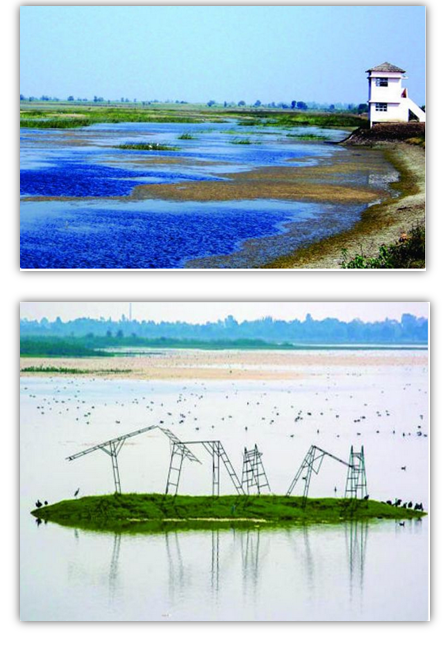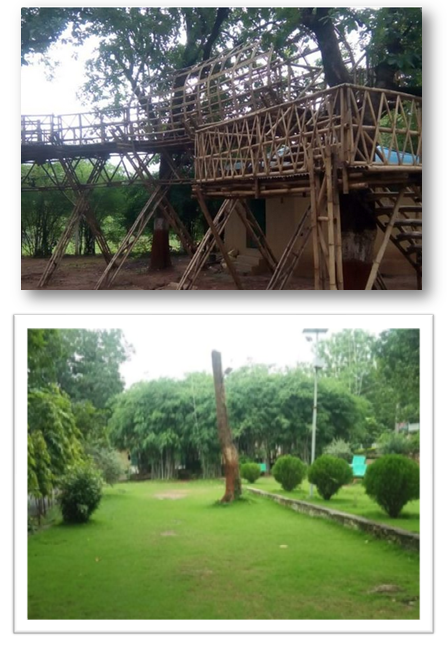7 eco development sites of Central Gujarat including Ratanmahal and Jambughoda have become attractive for tourists, providing all the facilities while spending time in the open space of nature.
Eco-development sites are located in the interior of Ratanmahal and Jambughoda
Guide to AC and non-AC rooms, huts, snacks, lunch, dinner and forest exploration
If we save one forest, we will save thousands of animals
Our selfish human instincts almost forget to regard wildlife and plants as organisms, but, we must accept that wildlife is the most important part of our existence. There are very few nature lovers who take care of the wildlife. If we save one forest, we will save thousands of animals. This contribution is not just about money. We can contribute by growing more plants, clearing forest areas, visiting wildlife sanctuaries and eco-development sites.
Now, you may be wondering what is an eco-development site?
An eco-development site has been set up for development in regional and rural areas. These sites are a combination of natural resources, technological advances and organizational forms that respect the natural ecosystem and local socio-cultural dimensions. These sites are a source of information, education and development for visitors as well as income, employment and growth for the local community.
These sites are attractive for tourists who prefer to spend time in the jungle
Vadodara Wildlife Conservation Department created 7 eco-development sites under the leadership of BR Vaghela, Deputy Conservator of Wildlife, Vadodara. These sites are attractive for tourists who like to spend their time in the jungles. Among these places are Udhal Mahuda of Ratanmahal, Naldha, Bhat of Jambughoda, Dhanpuri, Kada, Targol, Dabhoi's bird pilgrimage.
There are AC / non AC rooms as well as huts
These eco-development sites are located in the interior areas of Ratanmahal and Jambughoda. These sites have all the facilities for investment and package for tourists. There are AC / non AC rooms as well as huts with breakfast, lunch and a guide to forest exploration. Tourism insurance has also been taken care of by the Vadodara Wildlife Department.
Eco-development sites are located in the interior of Ratanmahal and Jambughoda
The Wildlife Department provided employment-growth opportunities by operating the sites
These sites and stay homes are cared for by the local community. The Wildlife Department of Vadodara has managed these sites and given them employment and development opportunities. The community has an account for profit. They use the profits to maintain and facilitate the site. Moreover, these locals take care of the nearby tourist spots. They take care of cleanliness, maintenance of investment houses and religious or developmental occasions. These communities are the custodians of wildlife and nature.
Ratanmahal is located at a distance of 130 km from Vadodara
The distance between Vadodara and Jambughoda is 80 km. And Ratanmahal is located at a distance of 130 km from Vadodara. Tourists can use this opportunity as a mini-vacation in the forest from Long Drive. Wildlife lovers can explore these sites and see bears, panthers, civet cats, jungle rusty cats, hyenas, and more. Nature lovers can explore more about rare types of trees and plants.
Guide to AC and non-AC rooms, huts, snacks, lunch, dinner and forest exploration
Family reunions can be organized and events celebrated
Thus, plan your weekend to plan family reunions and celebrate occasions and explore the jungle. Detailed information about routes, packages, list of exclusions, pictures for reference, as well as contact details at http://vadodarawildLive.in/.
Dhanpari Eco Tourism Society has provided equipment for the school
Read In Gujarati
Dhanpari's eco-tourism site is managed by an eco-tourism group of 38 people from Dhanpari village. The congregation receives income from this responsibility. Deputy Conservator of Forests, Wildlife Department, Vadodara b. R. Vaghela said that Mandali has become a source of employment for the members as well as a means of rural development. From the income of the congregation, these people have built a water tanker for the village, equipment for the village school. Thus, this congregation has shown a unique way of contributing to the development of the rural area by conserving nature.
















No comments:
Post a Comment